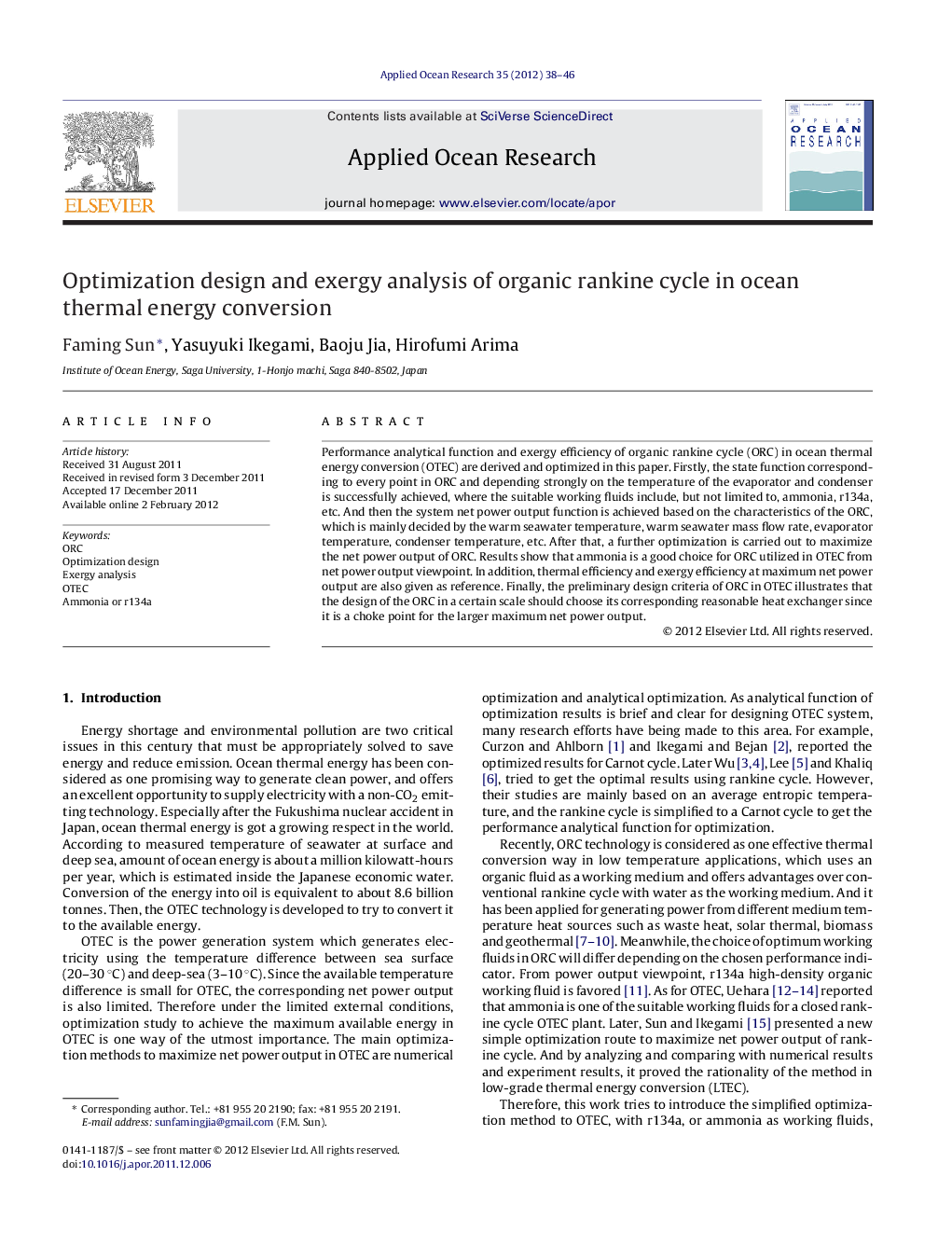| Article ID | Journal | Published Year | Pages | File Type |
|---|---|---|---|---|
| 1720176 | Applied Ocean Research | 2012 | 9 Pages |
Performance analytical function and exergy efficiency of organic rankine cycle (ORC) in ocean thermal energy conversion (OTEC) are derived and optimized in this paper. Firstly, the state function corresponding to every point in ORC and depending strongly on the temperature of the evaporator and condenser is successfully achieved, where the suitable working fluids include, but not limited to, ammonia, r134a, etc. And then the system net power output function is achieved based on the characteristics of the ORC, which is mainly decided by the warm seawater temperature, warm seawater mass flow rate, evaporator temperature, condenser temperature, etc. After that, a further optimization is carried out to maximize the net power output of ORC. Results show that ammonia is a good choice for ORC utilized in OTEC from net power output viewpoint. In addition, thermal efficiency and exergy efficiency at maximum net power output are also given as reference. Finally, the preliminary design criteria of ORC in OTEC illustrates that the design of the ORC in a certain scale should choose its corresponding reasonable heat exchanger since it is a choke point for the larger maximum net power output.
► Performance analytical function of ORC is derived and optimized. ► Thermal and exergy efficiencies at maximum net power output are given as reference. ► Ammonia is a good choice for ORC utilized in OTEC from net power output viewpoint. ► Heat exchanger performance is the choke point for larger scale OTEC.
